
- 記事一覧
- ゲストライター記事一覧
- A personal comparison of immigration experiences in Japan and Canada 日本とカナダでの移民体験の個人的な比較
A personal comparison of immigration experiences in Japan and Canada 日本とカナダでの移民体験の個人的な比較

このエッセイでは、移民として日本とカナダで生活した経験を比較してみたいと思います。日本とカナダ、この2つの国が移民の生活に関して提供するものを正確に比較出来るというわけではありませんが、両国の移民政策や文化に基づいた私の個人的な経験を説明したいと思います。まず、日本とカナダ両政府の現在までの社会政策を除いては、ここに書かれているものは私の個人的な体験であることを強調しておきます。また、この文章に含まれるであろう偏見は、あくまでも私個人の見解であり、いかなる関係者にも起因するものではないことをお伝えしておきます。最後に、私の見解は、これまで私が期待していたことや、私が育った文化などによって形成されたものであり、読む人によっては、共感出来ない部分もあるということをご了承ください。
名声、考え方、そして魅力
私の個人的な体験を説明する前に、私の見るこの2か国の大きな違いは、どちらも名声のある国(G7メンバー)でありながら、移民に対するアピールの仕方が全然違うということです。カナダが労働力を移民に頼るのに対し、日本は長期的には自動化に頼り、移民はあくまでも労働力不足の短期的な解決策としての手段と考えています。この違いは、これからの労働力をどのように計画するのかについて両国の考え方に大きな違いがあることを示しています。例えば、カナダは移民を受け入れ、出来るだけ社会に溶け込ませようとしています。一方、日本といえば、技能実習生制度や特定技能労働者制度などの一時的なゲストワーカーの導入や、労働力を代替できる技術に投資することによって、移民を最小限に抑え、移民の日本社会への統合を促進しないようにしています。全体的に見ると、日本はカナダよりもエスノセントリック(ethnocentric:自分たちの集団の視点からのみ世界を見ること)であると言えるかもしれません。
"カナダ人とは誰か?"は "日本人とは誰か?"よりも曖昧です。カナダではナショナリズムが比較的弱く、入国した人は誰でも社会生活で平等に扱われるとさえ言えるでしょう。しかし、日本ではそうではありません。日本政府は外国人に対して外国人というレッテルを張り、外国人は日本に滞在する間それを背負って生きていかなければならないのです。カナダ人には誰でもなれるので、移民である私はカナダでは社会的に突出した存在ではありませんでした。一方、日本人であるということは、民族性と日本文化で育ったことの組み合わせに基づくところが大きいのです。日本政府の政策立案者によれば、この姿勢が日本人を守るのだそうですが、私は移民が日本社会にとってどれほど安全保障上の脅威となるのかよくわかりません。出入国在留管理庁によると、日本における移民の数は2021年末時点で全人口の2.2%程度です。さらに、このレッテル貼りは、日本の人々の間に目に見えない社会的な隔たりを生み出してしまいます。最近の例では2020年、日本政府が外国人の入国を認めなかったCOVID-19の際の入国制限がそうでした。日本人の配偶者やフルタイムの労働者など、日本に合法的に滞在出来るステータスを持つ外国人でさえ、約半年間、入国を許されなかったのです。国民でないというだけで、居住国に入国できないのは恐ろしいことです。
国際経営開発研究所の調査は、「投資・開発」「準備」「魅力」の3つの要素で各国を採点しています。「投資・開発」は、国内の労働力を開発するために確保された資金を数値化しているもので、「魅力」は、国内外から優秀な人材をどれだけ集めているかを評価するものです。「準備」は、その国の人材がどの程度の知識や能力を備えているかを評価するものです。2022年度版の調査では、カナダは15位、日本は39位となっています。日本が移民にとって魅力的でないのには様々な理由がありますが、それは次からの章で詳しく説明することにしましょう。
ビザの種類、手続き、わかりやすさ
私はケベック州モントリオールの専門学校に出願し、簡単な面接の後、2016年に専門学校に入学しました。合格通知と一緒に地方自治体から確認書をもらい、カナダ政府のわかりやすい指示にも助けられながら、たった1日で学生ビザを取得することができました。申請手続きに関することは、2カ国語(英語・フランス語)でわかりやすく説明してくれました。また、重要な書類には多言語の公式翻訳をつけてもらうことも出来ました。
日本へのビザ申請の場合、私は "扶養家族 "とみなされました。公式文書の最新の英訳を見つけるのは簡単な事ではありませんでした。移民弁護士と一緒に行ったビザ申請一式を処理するのに約6週間かかった後、法務省が "在留資格認定証明書 "を発行しました。この「在留資格」という言葉自体にも、高い基準が設定されているような気がします。メッセージはとても明確です:誰でもこの国に入国出来るわけではないのだから、この国に入国できる自分はラッキーだと思いなさい。このように、フルタイム労働者の配偶者を扶養家族として扱うこのやり方は、日本の労働力不足を解消するものではありません。日本は人口が減っているのに、フルタイム労働者の配偶者は週に28時間しか働けないのです。そして、この権利を得るのにすら、入国管理局からスタンプを押してもらわなければいけないのです。
カナダ、ニュージーランド、オーストラリアなどでは、学生やフルタイム労働者の配偶者には様々なビザの種類がありますが、日本にはこのような多様なアプローチはなく、配偶者ビザで働く権利さえ認められていないのです。そこで次に登場するのが、官僚主義です。
官僚主義
全体として、日本の官僚主義はより広範囲に及んでいます。日本はカナダよりも紙ベースであり、デジタル化されているプロセスは少ないと言えるでしょう。長時間のビザ申請の後、入国するとすぐに在留カードをもらいました。しかし、今度は在留カードに住所を書いてもらい、住民登録をするために市役所に行かなくてはならなかったのです。その際、すでに法務省に提出してあるはずの結婚証明書の翻訳を持ってくるように言われたのです。その書類を以て配偶者ビザでの入国となったのにもかかわらず、です。しかし、市役所側は、私に念のためもう一度持ってくるようにと言いました。日本の官僚制度には、巨大なグレーゾーンがあると感じることがあります。そこに論理的な理由がなくても、官僚は、表面上、何かをしたように見せかけるためだけに、わけのわからない要求をすることがあります。日本での法的措置とは、膨大なペーパーワークを意味します。その都市の社会生活について管理している市役所は、行ったら疲れるような場所であってはいけないのです。むしろ、制度と人間との媒介のような存在であるべきなのです。
一方、カナダの住所に関しては、ビザの種類を変えない限り聞かれることはありませんでした。こういったビザの種類変更の申請は、オンラインで行うことができました。私はカナダで働き始めてから、別のアパートに引っ越さなければならなくなりました。ある時、何かあった時の為に住所の変更を政府に届け出ておいた方がいいだろうと思い、サービス・カナダの支店に行き、そこの事務の人に住所変更について話しました。すると事務の人は、カナダ政府から私の住所に何かが送られてくるようなことはないので、そんなことする必要はないのにと驚いていました。
日本の官僚制度というのは、日本に住む誰に対しても徹底して行われています。しかし、移民の場合には更に多くの手続きがあり、そこに関わってくる官僚主義の分だけ生活が複雑で大変になるのです。残念なことに、これらの多くの手続きには英語のサポートもないのです。他にも、移民である私は、公共の場で問いただされれば、いつでも自分の法的地位を証明出来るようにしておかなくてはなりません。私は日中2人の警察官に突然呼び止められ、理由も説明されないまま在留カードの提示を求められたことがあります。警察官たちは私の鞄の中まで調べてきました。残念ながら、このような態度には丁寧さも何も感じられません。その上、日本では移民にはサービスを提供しない企業もあり、そのようなことを禁止することは出来ないのです。家主の中には、移民に家を貸さない人もいます。私は時々、日本社会では自分は意図的に排除され、権力者が官僚主義を盾にして、私に簡単に嫌がらせをすることが出来るのではないかと感じることがあります。
ケベックと日本における言語的な困難
ここまでのカナダに関する私の経験は、カナダ全土に当てはまるものですが、今度はフランス語圏の州に話を移したいと思います。フランス語圏であるケベック州は他の州とはちょっと異なる文化を持っています。私はケベック州で2年間過ごしたので、ここではカナダという国の事ではなく、ケベック州について説明したいと思います。ケベック州は現在、ポピュリストの右派政権ということもあり、州に入れる移民の数を制限しようとしていて、どのように移民を統合するのかに力を入れています。しかし、このことは多くの場合、正統的な方法では行われていません。例えば、移民が公的機関に来た場合、自治体は英語とフランス語の両方でサービスを提供しなければなりません。しかし、ケベック州では、もしもこの移民がケベック州に6カ月以上住んでいる場合、この移民は英語でのサービスを受けることができないのです。ケベック州の第一公用語としてのフランス語を維持しようとするこのやり方は、カナダのもうひとつの公用語(英語)の利用者を差別することにもなるのです。しかし、これはケベック州内の多数派が認めていることなのです。ケベック州は、包括的(インクルーシブ)というところでいうなら、いい場所ではありません。
日本は島国で経済も安定している為、多くの住民は海外に行く必要もなく、語学力を向上させようとする必要もありません。2022年、日本人の約1割しかパスポートを所持していない一方、カナダ人の約7割はパスポートを所持しています。この違いからも、エスノセントリズム(自分の民族が他の民族よりも優れているとう考え方)がクローズアップされてしまうのです。私が見たところ、日本人は異文化との交流を最小限に留めておこうとするため、異文化に対してはほとんど無頓着です。日本の安定した経済と高度に統制された社会構造は、日本人に、世界中どこでもあらゆる面で日本と同じであるという思い込みを与えてしまうのです。これでは、日本人は他の生き方を理解することが難しいのではないかと思うのです。
市民権の取得、移動性、定住の将来の価値
カナダ人になることは、日本人になることよりも簡単です。例えば、カナダは二重国籍を認めていますが、日本は認めていません。カナダの永住権は、スキル次第で2年、もしくは即座に取得可能です。日本での永住権は、10年連続で日本に住んでいる場合、少なくとも5年間のフルタイムでの雇用経験(技能実習生や特定技能労働者は対象外)が必要です。カナダ国籍を取得するには3年間の永住権保持で十分ですが、日本国籍を取得するには5年から10年の永住権保持が必要です。つまり、カナダのパスポートを取得するには最低でも3年、日本のパスポートを取得するには最低でも10年必要ということになります。両国のパスポートは、移動性という面では非常に似ています。カナダは、自国の公用語の一つ(英語)を共用出来るアメリカに近いという利点があります。日本は中国に近いですが、中国とは共通の公用語がないため、どのようにコミュニケーションを取るのかが課題になるかもしれません。もうひとつ、日本で苦労したのは確定申告です。カナダで働く場合、確定申告を行い、翌年の上半期には確定申告で戻ってくるお金を手に入れられます。この申請もオンラインで行えます。移民はトランジションの際にかなり経済的に苦労することを考えると、確定申告は非常に重要です。しかし、日本ではそのような形で戻ってくるお金はありません。さらに移民を苦しめることになるのが、給与から削られた国民年金のお金が還付されないことです。大多数の移民が日本に残るのかどうかわかりませんが、残らない人には、自分たちの為に使用されることのない年金基金のお金が、完全に無くなってしまうのです。
入国管理局では、高度専門職を対象としたポイント制を導入し、10年以上にわたって運用してきました。その案内ページは日本語で書かれていましたが、外国人高度専門職のポイント計算機は英語で書かれていました。私はこの高度専門職の選考基準は高すぎると思います。この条件を満たした人が、なぜ日本を選ぶのでしょうか。高度専門職に就く人々は、このようなものに応募するとき、定住を考えるでしょうし、家族も連れてくるはずです。選考には70点が必要で、配偶者・パートナー(※)の資格で点数を稼ぐことは不可能です。さらに、移民は、詳細や申請方法や扶養家族の要件などについて知りたくても、公式の英訳を見つけることすら出来ないのです。日本には移民に対する法律や支援制度がなく、移民は自助努力で生き抜かなくてはならない為、社会生活のあらゆる場面で曖昧さに疲弊することになるのです。この曖昧さでは、移住を始める前から不安になってしまうかもしれません。
別の言い方をするならば、このような高い条件を満たす人であれば、ワーク・ライフ・バランスを重視し、柔軟な語学コースを提供して統合を促してくれる他の高所得国への定住を希望する可能性が高いということです。高度なスキルを持つプロフェッショナルは家族で移住する可能性が高く、移住に際しては家族にとっての利益も考慮するでしょう。日本ではインターナショナルスクールは珍しく、非常に高価であり、ごく一部の都市にしかありません。その上、移民の子供に対する言語サポートはありません。両親のどちらかが働いていない場合、保育園は子どもを受け入れてくれず、通常は母親が家にいて子どもの世話をしなければなりません。語学学校も費用がかさみ、働いている人や専業主婦の人にはスケジュールに融通が利きません。子供が小学校に上がるまでは、仕事に復帰することはほとんど不可能で、しかも日本語ができないと、まともな仕事には就けません。このような状況で、移民の夫婦が一時的な滞在を除き、なぜ日本に移民したいと思うでしょうか?多くの家族にとって、日本は最初の選択肢にはならないと思います。私は移住というのは、生活水準を上げ、新しい土地に定住できることを望む為に行うのだと思います。統合を伴わない移民というのは、移民にとっては何の助けにもなりません。たとえ社会に統合しないとしても、移民は多くの産業では使い捨ての労働者とみなされるため、雇用主にとっては使用しやすい存在となります。しかし、この考え方が維持されると、基本的に日本人がやりたがらない仕事にのみ移民の雇用が望まれることになるでしょう。移民を使い捨ての労働者として見ることは、他の国籍や民族の人々を見下すことにつながってしまう為、長期的に見ると健全な考え方とはいえないと私は思います。
結論
日本とカナダ:異なる大陸、異なる言語、そして異なる文化...。私は、この2つの国での移民としての経験について、自分の経験や考えを表したいと思いました。この2つの国には、移民にとって良い点と悪い点の両方があり、両国は互いに学ぶことが出来ると思います。ある国の人々の繁栄を維持・向上させることは、数字や科学ではありません。この適応へのプロセスは、移民の側にだけ期待するのではなく、相互的であるべきです。この適応プロセスには、現在の居住者と将来の居住者の間での交渉が必要です。世界的に人口増加は不均衡であり、発展途上国では機会の不平等から移住を余儀なくされています。
今日の世界では、より寛容で豊かな世界を作る為に、個人のニーズを無視することなく社会福祉を育み、自分とは異なる文化を学ぶ事や、自分とは異なる文化にセンシティブになることが発展の鍵となるでしょう。
In this article, I would like to compare my experiences of living in Japan to living in Canada as an immigrant. This essay is by no means an exact comparison of the lives that two countries offer to immigrants. However, I aim to explain my personal experiences based on the immigration policies and cultures of both countries. It is essential to emphasize that these writings are primarily personal, except for the social policies of both Japanese and Canadian governments to the current date. I also must say that any possible bias this writing contains is my own view and cannot be attributed to any related parties. Lastly, my experiences were shaped by my previous expectancies, the culture I grew up, and other factors that might not be relatable to some readers to some extent.
Prestige, mindsets, and appeal
Before getting into personal experiences, the main difference I observed in these two countries is that although they are both prestigious countries (they are both G7 members), their appeals to immigrants are different. While Canada relies on immigration for its workforce, Japan relies on automation in the long term and tries to create short-term solutions for labor shortages. This contrast shows a significant difference between the mindsets of the two countries in how they plan their workforce. For example, Canada embraces immigrants and integrates them as much as possible into society. Meanwhile, Japan tries to minimize immigrants while not encouraging the integration of immigrants by implementing temporary guest worker programs such as Technical Intern Training Program and Specified Skilled Workers programs, along with investments in technologies that can replace labor. Overall, it is possible to say Japan is more ethnocentric (ethnocentric: viewing the world only from the perspective of their own group) than Canada.
"Who is Canadian?" is vaguer than "Who is Japanese?". There is slightly less nationalism in Canada, and it is even possible to say anyone who entered the country is treated equally in their social life. But this is not the case in Japan. Japanese government tags non-Japanese people as foreigners, and they must live with this assignment during their stay in Japan. As an immigrant, I do not stick out in society as myself because anyone can be Canadian but being Japanese is more based on a combination of ethnicity and being raised in Japanese culture. According to policymakers of the Japanese government, this attitude protects the Japanese people. But I am not sure if there is a security threat from immigrants to Japanese society. The number of immigrants in Japan is around 2.2% of the whole population as of the end of 2021, according to the Immigration Services Agency of Japan. Furthermore, in return, this labeling creates an invisible social segregation among the people of Japan. A recent example was during COVID-19 curfews when the Japanese government did not allow foreigners to enter the country in 2020. Any foreigner with legal status in Japan, including spouses of Japanese nationals or full-time workers, was not allowed to enter the country for about half a year. It would be scary not to be able to enter your country of residence just because you are not a citizen.
Research by the International Institute for Management Development scores countries across three factors: investment & development, readiness, and appeal. The investment and development element quantifies the funds set aside to develop a domestic labor force. The Appeal factor assesses how well an economy keeps and draws in local and international talent. Additionally, the Readiness factor evaluates the level of knowledge and abilities present in a nation's talent pool. According to the 2022 edition of this research, Canada is ranked 15, and Japan is ranked 39. Japan has less appeal to immigrants due to various reasons that I will try to elaborate on further subheadings.
Visa types, procedures, and transparency
I applied to a technical college in Montréal, Québec, and after a brief interview, I got accepted into the school in 2016. I obtained a confirmation from the local government with the acceptance letter, and it took me one day to obtain my student visa with the help of the transparency of the Canadian government. Anything related to the application processes was explained clearly in two languages (English and French). Having official translations for many languages in some critical documents is also possible.
In the case of my visa application to Japan, I was considered a "dependent." It was not easy to find up-to-date English translations of the official documents. It took about six weeks to process my complete visa application, which was done with an immigration lawyer and the Ministry of Justice decided to print a "Certificate of Eligibility." The name of this document states the high standards from the beginning. The message is clear: not everyone can enter this country, and you should consider yourself lucky.
This approach for treating legal partners of full-time workers as dependents is not helping the labor shortage in Japan. Japan's population is decreasing, and still, legal partners of full-time workers can only work for twenty-eight hours per week. And this is a right that needs to be granted by getting a stamp from the Immigration Services Agency of Japan.
There are different visa types for the partner of students or full-time workers in countries such as Canada, New Zealand, and Australia, but Japan does not have this diverse approach and does not even grant the right to work on a dependent visa. This is when bureaucracy comes in.
Bureaucracy
Overall, Japan's bureaucracy is more extensive. I would say that Japan is more paper-based than Canada, and fewer processes are digitized. After the lengthy visa application, I was immediately given a residence card when I entered the country. But I had to go to the city hall to have my address written on my residence card and register as a resident. I was asked to bring a translation of our marriage certificate, which was already given to the Ministry of Justice, so that was how I came into the country on a dependent visa. But the city hall asked me to bring it again so they can be sure. In Japanese bureaucracy, sometimes I feel that there are massive grey zones. Even if the officer does not have a logical reason, they can make insensible requests so that they have done something on the surface. Any legal action in Japan means a ton of paperwork. The city hall, which regulates a city's social life, should not be a tiring environment. Instead, it should be more of a catalyst.
In contrast, I was not asked about my Canadian address unless I changed my visa type. These types of applications for visa-type changes can be done online. I had to move into a different apartment after I started working in Canada. At some point, I thought I should notify the address change to the government to avoid any possible issues. So, I went to a branch of Service Canada, and I told the clerk about my latest address change. The clerk was surprised because she told me it was unnecessary and the Canadian government would not send me anything to my address.
The bureaucracy in Japan is most likely exhaustive for anyone in the country. However, there are more procedures for immigrants, and the amount of bureaucracy they are entitled to make their lives even more complicated. Unfortunately, the lack of English support in these processes is also not doing any help. Another difficulty is that, as an immigrant, I must prove my legal status at any time in public if asked. I was randomly stopped by two police officers at midday and asked to show my residence card without showing any reason. They even searched my bag. Unfortunately, this attitude is not orderly. On top of this, some businesses do not serve immigrants in Japan, and nothing can stop them. Some landlords do not rent their houses to immigrants. I sometimes feel I am intentionally excluded in Japanese society in a way that the people with power can easily harass me by hiding behind bureaucracy.
Language-based difficulties in Québec and Japan
Until this point, my points about Canada could be applied to the whole country. Now, I will switch to the Francophone state: Québec, since it has a different culture than the rest of the country. As I spent two years in Québec, I will stick to the state, not the country. With the current populist right government, Québec is trying to limit the number of immigrants that get into the state, and they will focus on how to integrate them. But this is done in many unorthodox ways. For instance, the local government has to offer services in both English and French when immigrants come to an official institution. But if the immigrant has lived in Québec for more than six months, they cannot get English service. This approach to conserving French as the state's primary language also discriminates against the users of another official language of the country. But this is what the majority approves in the state. So, Québec is not a heavenly place when it comes to inclusiveness.
Since Japan is an island country with a stable economy, most residents do not need to travel abroad or even attempt to improve their language skills. Only around 10% of the Japanese population have a passport in 2022. In contrast, approximately 70% of Canadians have a passport. This difference brings ethnocentrism to the focus. In my observation, the Japanese prefer to exchange minimally with other cultures; therefore, they are mostly insensitive to different cultures. Japan's stable economy and highly regulated societal structure create an assumption for the residents that everywhere in the world is like Japan in every aspect. I think this makes Japanese people less understanding other possible ways of life.
Getting citizenship, mobility, and future value of settling in
On the other hand, becoming Canadian is more accessible than becoming Japanese. Canada allows dual citizenship, but Japan does not. You can obtain permanent residence in Canada in two years or instantly, depending on your skills. Getting permanent residency in Japan requires at least five years of full-time employment (technical intern trainees and specified skilled workers are not eligible) if the immigrant has lived in the country for ten consecutive years. Three years of permanent residency is sufficient to become a Canadian citizen, but five to ten years of permanent residence is required to become a Japanese citizen. So, it takes at least three years to get a Canadian passport, but at least ten years are needed to earn a Japanese one. Their passports offer very similar mobility scores. Canada has the advantage of being close to another country where they share one official language: the US. Japan is close to another large economy, China. However, communication might be an issue since these countries have no common official languages.
Another difficulty I encountered in Japan was the tax return. If you work in Canada, you must file a tax return and get a tax return in the first half of the following year. This application can also be made online. The tax return is crucial if you think that immigrants go through significant economic hardships during their transitions. But Japan does not offer such returns, and to make it harder for immigrants, the government does not refund the money cut from the salary for the National Pension System. Most immigrants do not know if they will stay in the country, but the ones that will not remain, their money for a pension fund that will never benefit them, is completely gone.
The Immigration Services Agency of Japan introduced a point-based system for highly skilled professionals, which has been used for over ten years. The information pages for these activities are in Japanese, but I found the point calculator for highly skilled foreign professionals in English. The selection criteria are too high, in my opinion. If a person satisfies these requirements, why would they choose Japan? A highly skilled professional would probably consider settling in when they apply for such an activity, and they would bring their family with them. Seventy points are required for selection, and it is impossible to gain points from the qualifications of spouse/partner*. Furthermore, immigrants cannot even find official English translations to learn more about details, application processes, and other requirements for the dependents. There is no legal or institutional support for immigrants in Japan, and immigrants survive on their own efforts, leading to an exhausting vagueness in every aspect of social life. This vagueness might be intimidating even before starting the immigration journey.
Another way to put it is that if a person satisfies such high requirements, it is likely that s/he may want to settle in another high-income country where work-life balance is valued and integration is encouraged by providing flexible language courses. A highly skilled professional is most likely to immigrate with a family. These professionals immigrate as a family and consider the possible benefits for the family. International schools are rare and very expensive in Japan and can be found in only a few cities. Besides, there is no language support for immigrant children. Nursery schools do not accept children when one of the parents is unemployed, and usually, the mother must stay at home and look after the children. Language schools are also costly, and the schedule is inflexible for people who work 0or are stay-at-home parents. Going back to work until your children start primary school is almost impossible. And you cannot find a decent job without Japanese language skills. I wonder why an immigrant couple would want to immigrate to Japan except for a temporary stay. Japan will not be the first option for most families. Immigration without integration is not helping the immigrants, but even if they do not integrate into society, they can still be useful for employers as they are considered disposable workers in many industries.
Conclusions
Japan and Canada: different continents, different languages, and different cultures... I wanted to express my experiences and thoughts about being an immigrant in these two countries. They have both advantages and disadvantages for immigrants; however, I think both countries can learn from each other. Maintaining and increasing the prosperity of people in a country is not an exact science. This continuous adaptation should not be only expected from the immigrants and should be reciprocal. This adaptation will require some negotiation with the lives of the current residents and the future habitants of the country. Population growth is unequal worldwide, and the inequality of opportunity in developing countries is forcing people to immigrate. In today's world, the key to development is fostering social welfare without ignoring individual needs and facilitating cultural learning and sensitivity for a more tolerant and prosperous world.
*Comparison of Japan's and Canada's scoring systems for immigration:
Japan: https://www.isa.go.jp/en/publications/materials/newimmiact_3_evaluate_index.html
Canada: https://www.cic.gc.ca/english/immigrate/skilled/crs-tool.asp

Recently Popular最近よく読まれている記事
-

食べていても痩せる 高齢者終末期のカヘキシア(悪液質)
食べていても痩せる。活発に運動を続けている人なら不思議に思わないが、介護度の高い高齢者にそのようなことが果たして起こるのだろうか。起こるのであれば、それはカヘキシアという病態であれば説明できる。 カヘキシア(悪液質)カヘキシアとは、食欲不振・体重減少・全身衰弱・倦怠感などを呈し、生命予後やQOL(qualit… -

終末期の自然な経過を見極めるとは
長期に渡り胃ろうからの栄養を続けていると、注入した物が食道へ逆流したり、唾液や痰の貯留が増えたりして、吸引を繰り返すことになるが、結局のところ、頻回の吸引も間に合わず、心肺停止状態で発見されることが多い。これでは看取りとは言えない。ここに至るまでの言葉を語れない人の苦しみ。このような事態を避ける智慧… -

自閉症スペクトラムと呼ばれているような障害は、実は障害ではない。生物としての人類のバリエーション(変異)の一つである。
自閉症スペクトラムと呼ばれているような障害は、実は障害ではない。生物としての人類のバリエーション(変異)の一つである。本来は人類の、生息環境に対する適応の一つのあり方だというのが、ニューロダイバーシテイ(脳多様性)という考え方に他ならない(詳しくは正高信男著『ニューロダイバーシテイと発達障害』(北大… -

社会保障分野での普遍主義と選別主義について
介護保険や医療保険では、貧富にかかわらず保険によって9割が給付(自己負担は1割)あるいは、7割が給付(自己負担は3割)される。この様な社会保障の方式は、「普遍主義」といわれている。「普遍主義」は、義務教育や、最近では高等学校の授業料にも適応されている(この場合も裕福な人も貧しい人も同様に無償である)。反… -

飲まず食わず(自発的飲食中止)という選択、VSEDをご存知ですか?
前回(Opinionsで9月24日配信記事)は有馬斉氏による安楽死の分類と、我が国の現状についてお伝えしました。また我が国においては、医師の致死的薬剤の処方による積極的安楽死は、法的に支持されていないということもお話ししました。諸外国では医師による致死的薬剤処方による安楽死が認められている国もありますが、もち… -

医療崩壊
ある日の外来。朝の9時から診察室に座りっぱなしでそろそろ3時間が経過。既に再診患だけではなく、その日の新患も回ってきます。で、そうした中に問題のおじさんがいました。「今、○○クリニックで薬をもらっていまして・・・」「30日分貰っているのですが、お腹が痛くなったので、診てもらいに来ました」「○○先生の紹介…
Writer ライター
-
 受賞作品Opinionsエッセイ
受賞作品OpinionsエッセイOpinionsエッセイの記事を見る
-
 ペンネーム東沖 和季
ペンネーム東沖 和季東沖 和季の記事を見る
-
 ニセコ在住下田 伸一
ニセコ在住下田 伸一下田 伸一の記事を見る
-
 ペンネーム 看護師宇梶 正
ペンネーム 看護師宇梶 正宇梶 正の記事を見る
-
 武蔵野大学大学院大谷 航介
武蔵野大学大学院大谷 航介大谷 航介の記事を見る
-
 一般社団法人村楽東 大史
一般社団法人村楽東 大史東 大史の記事を見る
-
 会社員池松 俊哉
会社員池松 俊哉池松 俊哉の記事を見る
-
 (公財)橋本財団研究助成 成果報告
(公財)橋本財団研究助成 成果報告研究助成 成果報告の記事を見る
-
 横浜市立大学小林 天音
横浜市立大学小林 天音小林 天音の記事を見る
-
 東京西徳洲会病院小児医療センター 小児神経科医師秋谷 進
東京西徳洲会病院小児医療センター 小児神経科医師秋谷 進秋谷 進の記事を見る
-
 公益財団法人地方自治総合研究所 常任研究員坂本 誠
公益財団法人地方自治総合研究所 常任研究員坂本 誠坂本 誠の記事を見る
-
 ペンネームAurora
ペンネームAuroraAuroraの記事を見る
-
 つむぐ株式会社 代表取締役竹村 仁量
つむぐ株式会社 代表取締役竹村 仁量竹村 仁量の記事を見る
-
 岡山大学学術研究院医歯薬学域長谷井 嬢
岡山大学学術研究院医歯薬学域長谷井 嬢長谷井 嬢の記事を見る
-
 ソシエタス総合研究所 研究員Karki Shyam Kumar (カルキ シャム クマル)
ソシエタス総合研究所 研究員Karki Shyam Kumar (カルキ シャム クマル)Karki Shyam Kumar (カルキ シャム クマル)の記事を見る
-
 NPO法人妊娠しぇるとSOS 理事長小林 智子
NPO法人妊娠しぇるとSOS 理事長小林 智子小林 智子の記事を見る
-
 書きたい人のためのwebマガジンOpinions編集部
書きたい人のためのwebマガジンOpinions編集部Opinions編集部の記事を見る
-
 介護福祉士渡口 将生
介護福祉士渡口 将生渡口 将生の記事を見る
-
 相談支援専門員・福祉ネイリストゆき
相談支援専門員・福祉ネイリストゆきゆきの記事を見る
-
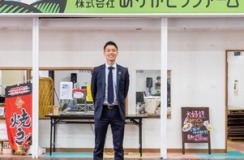 株式会社ありがとうファーム取締役副社長馬場 拓郎
株式会社ありがとうファーム取締役副社長馬場 拓郎馬場 拓郎の記事を見る
-
 ジャーナリスト ペンネームジョワキン
ジャーナリスト ペンネームジョワキンジョワキンの記事を見る
-
 ソシエタス総合研究所 研究員Andi Holik Ramdani(アンディ ホリック ラムダニ)
ソシエタス総合研究所 研究員Andi Holik Ramdani(アンディ ホリック ラムダニ)Andi Holik Ramdani(アンディ ホリック ラムダニ)の記事を見る
-
 ソシエタス総合研究所 研究員Waode Hanifah Istiqomah(ワオデ ハニファー イスティコマー)
ソシエタス総合研究所 研究員Waode Hanifah Istiqomah(ワオデ ハニファー イスティコマー)Waode Hanifah Istiqomah(ワオデ ハニファー イスティコマー)の記事を見る
-
 元芝園団地自治会岡﨑 広樹
元芝園団地自治会岡﨑 広樹岡﨑 広樹の記事を見る
-
 岡山外語学院留学生カーン エムディ マムン
岡山外語学院留学生カーン エムディ マムンカーン エムディ マムンの記事を見る
-
 行政書士板垣 岳人
行政書士板垣 岳人板垣 岳人の記事を見る
-
 Crimson Education教育コンサルタント蘇 暁辰(Xiaochen Su)
Crimson Education教育コンサルタント蘇 暁辰(Xiaochen Su)蘇 暁辰(Xiaochen Su)の記事を見る
-
 神戸大学准教授斉藤 善久
神戸大学准教授斉藤 善久斉藤 善久の記事を見る
-
 ドイツ在住阿部プッシェル 薫
ドイツ在住阿部プッシェル 薫阿部プッシェル 薫の記事を見る
-
 ライター/編集者黒部 麻子
ライター/編集者黒部 麻子黒部 麻子の記事を見る
-
 翻訳家田尻 潤子
翻訳家田尻 潤子田尻 潤子の記事を見る
-
 アブダビ環境庁長官 Environment Agency – Abu Dhabi (ead.gov.ae)シャイカ・サレム・アル・ダヘリ
アブダビ環境庁長官 Environment Agency – Abu Dhabi (ead.gov.ae)シャイカ・サレム・アル・ダヘリシャイカ・サレム・アル・ダヘリの記事を見る
-
 元整形外科医/農園主散木洞人
元整形外科医/農園主散木洞人散木洞人の記事を見る
-
 豊橋技術科学大学パク ミンジョン
豊橋技術科学大学パク ミンジョンパク ミンジョンの記事を見る
-
 生理革命委員会澤田まりあ、山形萌花、山領珊南
生理革命委員会澤田まりあ、山形萌花、山領珊南澤田まりあ、山形萌花、山領珊南の記事を見る
-
 SOMPOケア株式会社藤田 定司
SOMPOケア株式会社藤田 定司藤田 定司の記事を見る
-
 おかやま山陽高等学校橘 里香サニヤ
おかやま山陽高等学校橘 里香サニヤ橘 里香サニヤの記事を見る
-
 ソシエタス総合研究所 研究員坂入 悦子
ソシエタス総合研究所 研究員坂入 悦子坂入 悦子の記事を見る
-
 Hiro山下行政書士国際法務事務所 代表山下裕司
Hiro山下行政書士国際法務事務所 代表山下裕司山下裕司の記事を見る
-
 ソシエタス総合研究所 研究員Niklas Holzapfel ホルツ アッペル ニクラス
ソシエタス総合研究所 研究員Niklas Holzapfel ホルツ アッペル ニクラスNiklas Holzapfel ホルツ アッペル ニクラスの記事を見る
-
 サウンドエンジニアEmre・Ekici エムレ・エキジ
サウンドエンジニアEmre・Ekici エムレ・エキジEmre・Ekici エムレ・エキジの記事を見る
-
 NPO法人岡山県国際団体協議会
NPO法人岡山県国際団体協議会岡山県国際団体協議会の記事を見る
-
 岡山大学 学術研究院 社会文化科学学域 教授東條 光彦
岡山大学 学術研究院 社会文化科学学域 教授東條 光彦東條 光彦の記事を見る
-
 福岡大学 名誉教授田村 和夫
福岡大学 名誉教授田村 和夫田村 和夫の記事を見る
-
 ソシエタス総合研究所 研究員相川 真穂
ソシエタス総合研究所 研究員相川 真穂相川 真穂の記事を見る
-
 一般社団法人京都総合科学研究所 アドバイザー松村 道郎
一般社団法人京都総合科学研究所 アドバイザー松村 道郎松村 道郎の記事を見る
-
 ワラム株式会社 代表取締役加藤 侑子
ワラム株式会社 代表取締役加藤 侑子加藤 侑子の記事を見る
-
 岡山市立操南中学校 教諭/NPO法人国際協力研究所・岡山代表理事竹島 潤
岡山市立操南中学校 教諭/NPO法人国際協力研究所・岡山代表理事竹島 潤竹島 潤の記事を見る
-
 新西横浜街の予防医療ケア研究室 保健師・看護師・元先端バイオ創薬ベンチャー取締役五十嵐 直敬
新西横浜街の予防医療ケア研究室 保健師・看護師・元先端バイオ創薬ベンチャー取締役五十嵐 直敬五十嵐 直敬の記事を見る
-
 共著橋本俊明・秋吉湖音
共著橋本俊明・秋吉湖音橋本俊明・秋吉湖音の記事を見る
-
 ライター菊池 洋勝
ライター菊池 洋勝菊池 洋勝の記事を見る
-
 大東文化大学国際関係学部・特任教授 高崎経済大学経済学部・非常勤講師 目白大学経営学部経営学科&目白大学大学院経営学研究科 非常勤講師 長崎県佐世保市役所 経済活性化~産業振興に関するアドバイザー、博士(経済学)江崎 康弘
大東文化大学国際関係学部・特任教授 高崎経済大学経済学部・非常勤講師 目白大学経営学部経営学科&目白大学大学院経営学研究科 非常勤講師 長崎県佐世保市役所 経済活性化~産業振興に関するアドバイザー、博士(経済学)江崎 康弘江崎 康弘の記事を見る
-
 ソシエタス総合研究所 研究員秋吉 湖音
ソシエタス総合研究所 研究員秋吉 湖音秋吉 湖音の記事を見る
-
 JICA専門家足立 伸也
JICA専門家足立 伸也足立 伸也の記事を見る
-
 富士通株式会社 第三ファイナンス事業本部 シニアマネージャー安留 義孝
富士通株式会社 第三ファイナンス事業本部 シニアマネージャー安留 義孝安留 義孝の記事を見る
-
 EDAS(イーダス)理事長田村 拓
EDAS(イーダス)理事長田村 拓田村 拓の記事を見る
-
 監督・プロデューサー湯浅 典子
監督・プロデューサー湯浅 典子湯浅 典子の記事を見る
-
 日本経済大学 准教授山下 誠矢
日本経済大学 准教授山下 誠矢山下 誠矢の記事を見る
-
 人と医療の研究室 代表池尻 達紀
人と医療の研究室 代表池尻 達紀池尻 達紀の記事を見る
-
 一般社団法人飛島学園 代表理事堂野 博之
一般社団法人飛島学園 代表理事堂野 博之堂野 博之の記事を見る
-
 ニッセイ基礎研究所 生活研究部 主任研究員、ヘルスケアリサーチセンター・ジェロントロジー推進室兼任金 明中
ニッセイ基礎研究所 生活研究部 主任研究員、ヘルスケアリサーチセンター・ジェロントロジー推進室兼任金 明中金 明中の記事を見る
-
 医療法人財団足立病院 理事長、社会福祉法人あだち福祉会 理事長畑山 博
医療法人財団足立病院 理事長、社会福祉法人あだち福祉会 理事長畑山 博畑山 博の記事を見る
-
 教育研究家、合同会社ライフ&ワーク代表妹尾 昌俊
教育研究家、合同会社ライフ&ワーク代表妹尾 昌俊妹尾 昌俊の記事を見る
-
 ハーバード大学ベス・イスラエル・ディーコネス・メディカルセンター、高度消化管/最小侵襲外科フェロー中元 啓太郎
ハーバード大学ベス・イスラエル・ディーコネス・メディカルセンター、高度消化管/最小侵襲外科フェロー中元 啓太郎中元 啓太郎の記事を見る
-
 ソシエタス総合研究所 主任研究員井上 登紀子
ソシエタス総合研究所 主任研究員井上 登紀子井上 登紀子の記事を見る
-
 ソシエタス総合研究所 研究員松田 郁乃
ソシエタス総合研究所 研究員松田 郁乃松田 郁乃の記事を見る
-
 ソシエタス総合研究所 研究員アイシェ・ウルグン・ソゼン Ayse Ilgin Sozen
ソシエタス総合研究所 研究員アイシェ・ウルグン・ソゼン Ayse Ilgin Sozenアイシェ・ウルグン・ソゼン Ayse Ilgin Sozenの記事を見る
-
 NPO法人岡山市子どもセンター 事務局久川 春菜
NPO法人岡山市子どもセンター 事務局久川 春菜久川 春菜の記事を見る
-
 ユースワーカー(Youth Woker)森分 志学
ユースワーカー(Youth Woker)森分 志学森分 志学の記事を見る
-
 ペンネーム三村 喜久雄
ペンネーム三村 喜久雄三村 喜久雄の記事を見る
-
 ペンネーム黒木 洋一郎
ペンネーム黒木 洋一郎黒木 洋一郎の記事を見る
-
 NPO法人チャリティーサンタ 理事河津 泉
NPO法人チャリティーサンタ 理事河津 泉河津 泉の記事を見る
-
 金沢大学人間社会学域地域創造学類・准教授 、特定非営利活動法人国土利用再編研究所・理事長林 直樹
金沢大学人間社会学域地域創造学類・准教授 、特定非営利活動法人国土利用再編研究所・理事長林 直樹林 直樹の記事を見る
-
 認定NPO法人ペアレント・サポートすてっぷ理事長安藤希代子
認定NPO法人ペアレント・サポートすてっぷ理事長安藤希代子安藤希代子の記事を見る
-
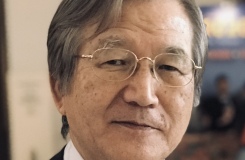 カリフォルニア大学サンフランシスコ校小児胸部心臓外科教授佐野俊二
カリフォルニア大学サンフランシスコ校小児胸部心臓外科教授佐野俊二佐野俊二の記事を見る
-
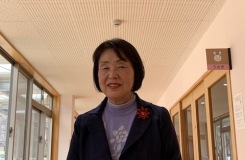 社会福祉法人 旭川荘 ひらたえがお保育園 園長江田 加代子
社会福祉法人 旭川荘 ひらたえがお保育園 園長江田 加代子江田 加代子の記事を見る
-
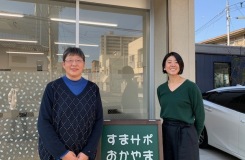 NPO法人 おかやまUFE 副理事長 ・NPO法人 おかやまUFE 事務局阪井 ひとみ・永松千恵
NPO法人 おかやまUFE 副理事長 ・NPO法人 おかやまUFE 事務局阪井 ひとみ・永松千恵阪井 ひとみ・永松千恵 の記事を見る
-
 社会学者 東京大学名誉教授 認定NPO法人ウィメンズアクションネットワーク(WAN)理事長 上野 千鶴子
社会学者 東京大学名誉教授 認定NPO法人ウィメンズアクションネットワーク(WAN)理事長 上野 千鶴子上野 千鶴子 の記事を見る
-
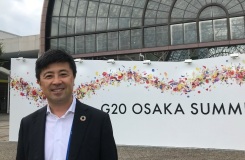 外務省 国際保健政策室長 鷲見 学
外務省 国際保健政策室長 鷲見 学鷲見 学の記事を見る
-
 プロ・アダプティブ・サーファー藤原(旧姓:川上)智貴
プロ・アダプティブ・サーファー藤原(旧姓:川上)智貴藤原(旧姓:川上)智貴の記事を見る
-
 京都大学霊長類研究所 教授正高信男
京都大学霊長類研究所 教授正高信男正高信男の記事を見る
-
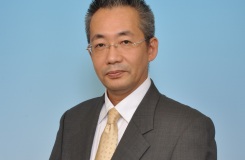 社会医療法人石川記念会HITO病院緩和ケア内科統括部長大坂巌
社会医療法人石川記念会HITO病院緩和ケア内科統括部長大坂巌大坂巌の記事を見る
-
 東京医療学院大学保健医療学部教授上田 諭
東京医療学院大学保健医療学部教授上田 諭上田 諭の記事を見る
-
 「夢を叶える145」ライター宮村孝博
「夢を叶える145」ライター宮村孝博宮村孝博の記事を見る
-
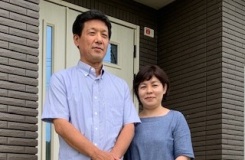 NPO法人 Anneの家 代表 美作地区里親会会員松本芳也・淳子夫妻
NPO法人 Anneの家 代表 美作地区里親会会員松本芳也・淳子夫妻松本芳也・淳子夫妻の記事を見る
-
 特定非営利活動法人あかね 代表理事中山 遼
特定非営利活動法人あかね 代表理事中山 遼中山 遼の記事を見る
-
 大阪市立総合医療センター 緩和医療科部長 兼 緩和ケアセンター長 大阪市立大学医学部臨床准教授 一般社団法人「こどものホスピスプロジェクト」常務理事 日本小児科学会専門医 英国カーディフ大学緩和ケア認定医(Certificate in Palliative Care) 日本緩和医療学会暫定多田羅竜平
大阪市立総合医療センター 緩和医療科部長 兼 緩和ケアセンター長 大阪市立大学医学部臨床准教授 一般社団法人「こどものホスピスプロジェクト」常務理事 日本小児科学会専門医 英国カーディフ大学緩和ケア認定医(Certificate in Palliative Care) 日本緩和医療学会暫定多田羅竜平多田羅竜平の記事を見る
-
 NPO法人 岡山マインド「こころ」/代表理事 一般社団法人お互いさま・まびラボ/副代表理事多田伸志
NPO法人 岡山マインド「こころ」/代表理事 一般社団法人お互いさま・まびラボ/副代表理事多田伸志多田伸志の記事を見る
-
 一般社団法人MY TREE代表理事 MY TREEペアレンツ・プログラムスーパーバイザー 認定フェミニストカウンセラー (公認心理師)中川和子
一般社団法人MY TREE代表理事 MY TREEペアレンツ・プログラムスーパーバイザー 認定フェミニストカウンセラー (公認心理師)中川和子中川和子の記事を見る
-
 兵庫県立ひょうごこころの医療センター精神科医師小田 陽彦
兵庫県立ひょうごこころの医療センター精神科医師小田 陽彦小田 陽彦の記事を見る
-
 独立行政法人国立病院機構福山医療センター院長岩垣博己・堀井城一朗・矢野 平
独立行政法人国立病院機構福山医療センター院長岩垣博己・堀井城一朗・矢野 平岩垣博己・堀井城一朗・矢野 平の記事を見る
-
 岡山大学 教授 文学部長田中 共子
岡山大学 教授 文学部長田中 共子田中 共子の記事を見る
-
 Civil Engineer (仕組みつくりの技術者)石田篤史
Civil Engineer (仕組みつくりの技術者)石田篤史石田篤史の記事を見る
-
 一般財団法人キヤノングローバル戦略研究所 研究主幹・経済学博士松山幸弘
一般財団法人キヤノングローバル戦略研究所 研究主幹・経済学博士松山幸弘松山幸弘の記事を見る
-
 岡山大学生殖補助医療技術教育研究センター ART教育研究部門長・教授舟橋 弘晃
岡山大学生殖補助医療技術教育研究センター ART教育研究部門長・教授舟橋 弘晃舟橋 弘晃の記事を見る
-
 医療法人サンズ理事長浅野 直
医療法人サンズ理事長浅野 直浅野 直の記事を見る
-
 株式会社ヘリオス 代表執行役社長CEO鍵本忠尚
株式会社ヘリオス 代表執行役社長CEO鍵本忠尚鍵本忠尚の記事を見る
-
 慶應義塾大学文学部人間科学専攻教授(医療人類学) McGill大学人類学部・医療社会研究学部Ph.D.北中淳子
慶應義塾大学文学部人間科学専攻教授(医療人類学) McGill大学人類学部・医療社会研究学部Ph.D.北中淳子北中淳子の記事を見る
-
 岡山大学病院 緩和支持医療科片山英樹
岡山大学病院 緩和支持医療科片山英樹片山英樹の記事を見る
-
 岡山市役所 保健福祉企画総務課松岡克朗
岡山市役所 保健福祉企画総務課松岡克朗松岡克朗の記事を見る
-
 近現代史研究家青木康嘉
近現代史研究家青木康嘉青木康嘉の記事を見る
-
 独立行政法人国立病院機構福山医療センター院長岩垣博己・長谷川利路・中島正勝
独立行政法人国立病院機構福山医療センター院長岩垣博己・長谷川利路・中島正勝岩垣博己・長谷川利路・中島正勝の記事を見る
-
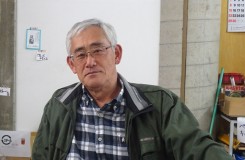 岡山高等学院 副校長 水野文一郎
岡山高等学院 副校長 水野文一郎水野文一郎の記事を見る
-
 社会の仕組み屋、社会の編集者石原 達也
社会の仕組み屋、社会の編集者石原 達也石原 達也の記事を見る
-
 一般社団法人SGSG理事長/中国学園大学子ども学部講師野村泰介
一般社団法人SGSG理事長/中国学園大学子ども学部講師野村泰介野村泰介の記事を見る
-
 一橋大学経済研究所 教授神林 龍
一橋大学経済研究所 教授神林 龍神林 龍の記事を見る
-
 特定医療法人自由会 理事 (社会福祉法人敬友会 理事、公益財団法人橋本財団 理事)橋本 健二
特定医療法人自由会 理事 (社会福祉法人敬友会 理事、公益財団法人橋本財団 理事)橋本 健二橋本 健二の記事を見る
-
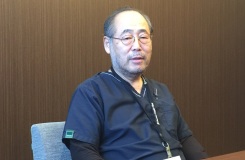 医療法人社団 岡山二人クリニック 理事長、医学博士林 伸旨
医療法人社団 岡山二人クリニック 理事長、医学博士林 伸旨林 伸旨の記事を見る
-
 フリーライター渡辺嗣郎(わたなべ しろう)
フリーライター渡辺嗣郎(わたなべ しろう)渡辺嗣郎(わたなべ しろう)の記事を見る
-
 国立大学法人岡山大学 副理事(国際担当)横井 篤文
国立大学法人岡山大学 副理事(国際担当)横井 篤文横井 篤文の記事を見る
-
 ペンネームドクターX
ペンネームドクターXドクターXの記事を見る
-
 NPO法人 山村エンタープライズ 代表理事藤井裕也
NPO法人 山村エンタープライズ 代表理事藤井裕也藤井裕也の記事を見る
-
 キャンサー・ソリューションズ株式会社 代表取締役社長桜井 なおみ
キャンサー・ソリューションズ株式会社 代表取締役社長桜井 なおみ桜井 なおみの記事を見る
-
 AMDA(アムダ) グループ代表・認定非営利活動法人AMDA 理事長菅波 茂
AMDA(アムダ) グループ代表・認定非営利活動法人AMDA 理事長菅波 茂菅波 茂の記事を見る
-
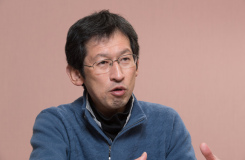 ふれあい歯科ごとう代表五島 朋幸
ふれあい歯科ごとう代表五島 朋幸五島 朋幸の記事を見る
-
 介護従事者髙田 浩一
介護従事者髙田 浩一髙田 浩一の記事を見る
-
 ケアマネ-ジャー・社会福祉士かえる ちから
ケアマネ-ジャー・社会福祉士かえる ちからかえる ちからの記事を見る
-
 五常・アンド・カンパニー株式会社 代表取締役社長慎 泰俊
五常・アンド・カンパニー株式会社 代表取締役社長慎 泰俊慎 泰俊の記事を見る
-
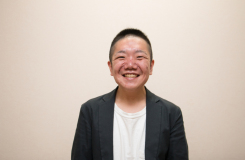 NPO法人 ポケットサポート代表理事三好 祐也
NPO法人 ポケットサポート代表理事三好 祐也三好 祐也の記事を見る
-
 医療法人 寺田病院 院長板野 聡
医療法人 寺田病院 院長板野 聡板野 聡の記事を見る
-
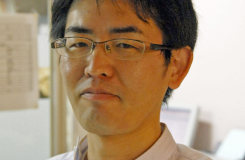 鳥取市立病院 地域医療総合支援センター 生活支援室 副室長、リハビリテーション部 副部長、歯科 医長目黒 道生
鳥取市立病院 地域医療総合支援センター 生活支援室 副室長、リハビリテーション部 副部長、歯科 医長目黒 道生目黒 道生の記事を見る
-
 鳥取市立病院地域医療総合支援センター長 鳥取市福祉部参与足立 誠司
鳥取市立病院地域医療総合支援センター長 鳥取市福祉部参与足立 誠司足立 誠司の記事を見る
-
 ペンネーム池井戸 高志
ペンネーム池井戸 高志池井戸 高志の記事を見る
-
 ペンネーム池田 出水
ペンネーム池田 出水池田 出水の記事を見る
-
 岡山大学大学院ヘルスシステム統合科学研究科教授松岡 順治
岡山大学大学院ヘルスシステム統合科学研究科教授松岡 順治松岡 順治の記事を見る
-
 鳥取市立病院 名誉院長田中 紀章
鳥取市立病院 名誉院長田中 紀章田中 紀章の記事を見る
-
 岡山大学大学院保健学研究科 副研究科長 教授齋藤 信也
岡山大学大学院保健学研究科 副研究科長 教授齋藤 信也齋藤 信也の記事を見る
-
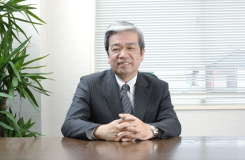 公益財団法人橋本財団 理事長、医学博士橋本 俊明
公益財団法人橋本財団 理事長、医学博士橋本 俊明橋本 俊明の記事を見る







